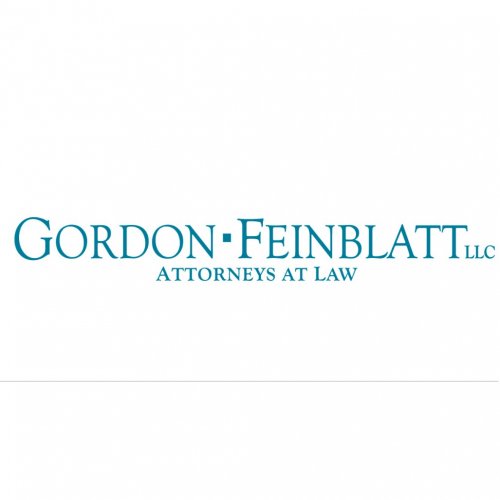Best Bankruptcy & Debt Lawyers in Baltimore
Share your needs with us, get contacted by law firms.
Free. Takes 2 min.
List of the best lawyers in Baltimore, United States
United States Bankruptcy & Debt Legal Articles
Browse our 2 legal articles about Bankruptcy & Debt in United States written by expert lawyers.
- Filing Chapter 7 in 2026 United States: New Income Limits
- Chapter 7 gives a near-total discharge of most unsecured debt, but you must pass a "means test" that compares your household income to your state's median income for your family size in 2026. The U.S. Trustee Program updates the state median income numbers at least once a year; you qualify... Read more →
- Debt Collectors in the US: Stop Harassment and Verify Debt
- You have strong federal rights under the Fair Debt Collection Practices Act (FDCPA) and CFPB Regulation F. Collectors cannot harass you, must send a validation notice, and must stop collecting until they verify if you dispute in writing within 30 days. Tell collectors to stop contacting you, then follow up... Read more →
About Bankruptcy & Debt Law in Baltimore, United States
In Baltimore, United States, bankruptcy and debt law are federal legal issues that provide a way for individuals and businesses facing considerable debt to eliminate or repay them under court supervision and protection. Bankruptcy can provide a financial fresh start by wiping out the legal obligation to pay most debts through a discharge. However, it has severe impacts, such as a drop in your credit score and public record of your bankruptcy on your credit report for up to ten years.
Why You May Need a Lawyer
A knowledgeable and experienced bankruptcy lawyer will guide you through the complex steps of the process. They can suggest when the time is right for bankruptcy, what type of bankruptcy suits best to your needs, and how to make the most of the process. A law professional can also ensure the correctness and completion of forms, adherence to deadlines, and direct you towards the right debt relief path. Moreover, having legal representation might represent a strong line of defense against creditors who could object to your filing.
Local Laws Overview
While federal law governs bankruptcy in the United States, certain local rules and exemptions apply in Baltimore. Some of these exemptions include homestead exemption, motor vehicle exemption, and wildcard exemption protecting a debtor's personal property. Maryland doesn't allow residents to utilize the federal bankruptcy exemptions; hence your assets will safeguard under Maryland's state law exemptions. A key local rule in Baltimore is that all bankruptcy cases are filed in the U.S. Bankruptcy Court for the District of Maryland, Baltimore Division.
Frequently Asked Questions
1. What types of bankruptcy can I file in Baltimore?
In Baltimore, most people file either a Chapter 7 or Chapter 13 bankruptcy. Chapter 7 works best for people with low income with few assets, while Chapter 13 is designed for people who can repay a part of the debt through a payment plan.
2. Can I keep my property if I file for bankruptcy?
Property protections depend on whether your assets are exempt under Maryland's exemption laws. In many cases, filing a Chapter 13 bankruptcy will allow you to keep your property.
3. How long does a bankruptcy stay on my credit report?
Typically, a Chapter 7 bankruptcy stays on your credit report for ten years, whereas a Chapter 13 bankruptcy stays for seven years.
4. Will I ever be able to get credit after filing bankruptcy?
Yes, you might be able to get credit after your bankruptcy is discharged. However, the interest rates might be higher, and the credit limit might be lower.
5. Can I file for Bankruptcy without a lawyer?
While it's legally possible to file for bankruptcy by yourself, it's not recommended due to the complexities of the bankruptcy laws and the potential negative consequences if any mistake is made during the filing process.
Additional Resources
The Maryland Chapter 13 bankruptcy trustee's website and United States Trustee Program of the Department of Justice's site are excellent resources for finding more information about bankruptcy. Moreover, the Maryland Courts website provides valuable information about filing bankruptcy without a lawyer.
Next Steps
If you're considering filing for bankruptcy, the first step is to consult with an experienced bankruptcy lawyer. This will help you understand your options and the potential consequences of bankruptcy. Do thorough research and choose a lawyer who is well-acclaimed in the bankruptcy field and whom you feel comfortable with. Remember, the success of your bankruptcy case heavily depends upon your legal representation.
Lawzana helps you find the best lawyers and law firms in Baltimore through a curated and pre-screened list of qualified legal professionals. Our platform offers rankings and detailed profiles of attorneys and law firms, allowing you to compare based on practice areas, including Bankruptcy & Debt, experience, and client feedback.
Each profile includes a description of the firm's areas of practice, client reviews, team members and partners, year of establishment, spoken languages, office locations, contact information, social media presence, and any published articles or resources. Most firms on our platform speak English and are experienced in both local and international legal matters.
Get a quote from top-rated law firms in Baltimore, United States — quickly, securely, and without unnecessary hassle.
Disclaimer:
The information provided on this page is for general informational purposes only and does not constitute legal advice. While we strive to ensure the accuracy and relevance of the content, legal information may change over time, and interpretations of the law can vary. You should always consult with a qualified legal professional for advice specific to your situation.
We disclaim all liability for actions taken or not taken based on the content of this page. If you believe any information is incorrect or outdated, please contact us, and we will review and update it where appropriate.
Browse bankruptcy & debt law firms by service in Baltimore, United States
Baltimore, United States Attorneys in related practice areas.









